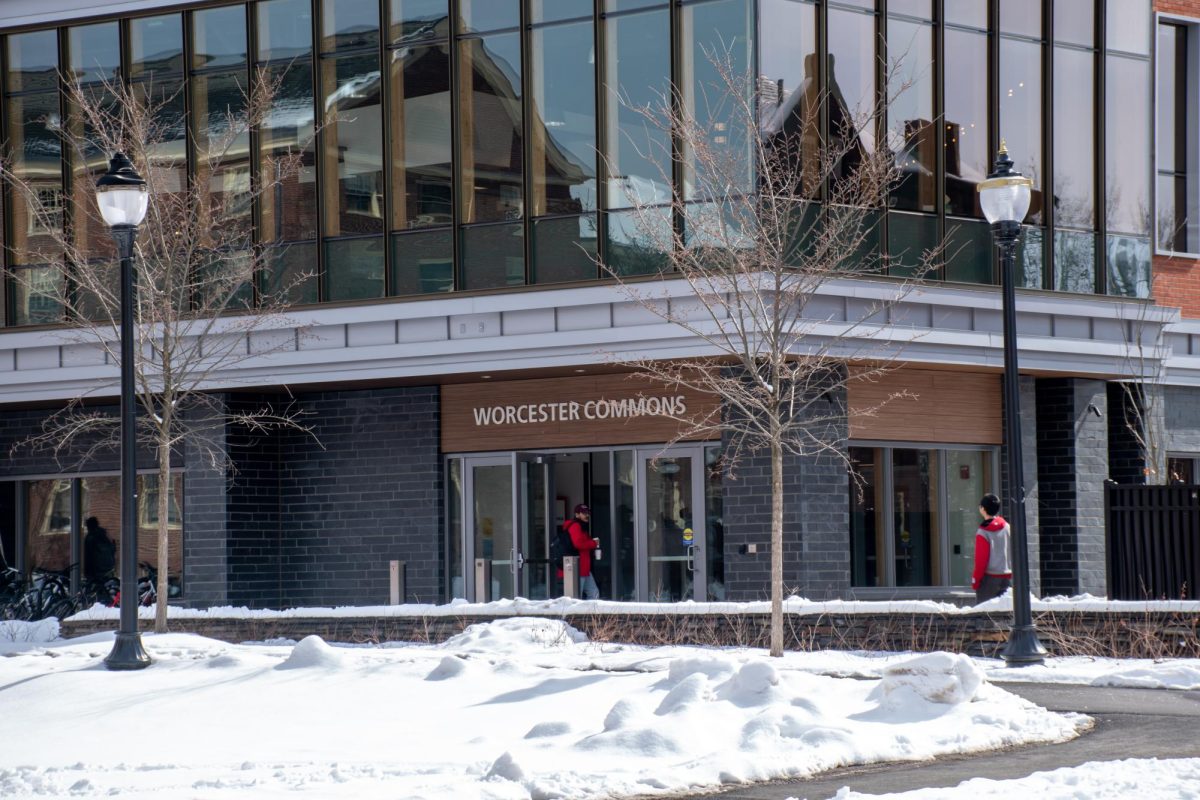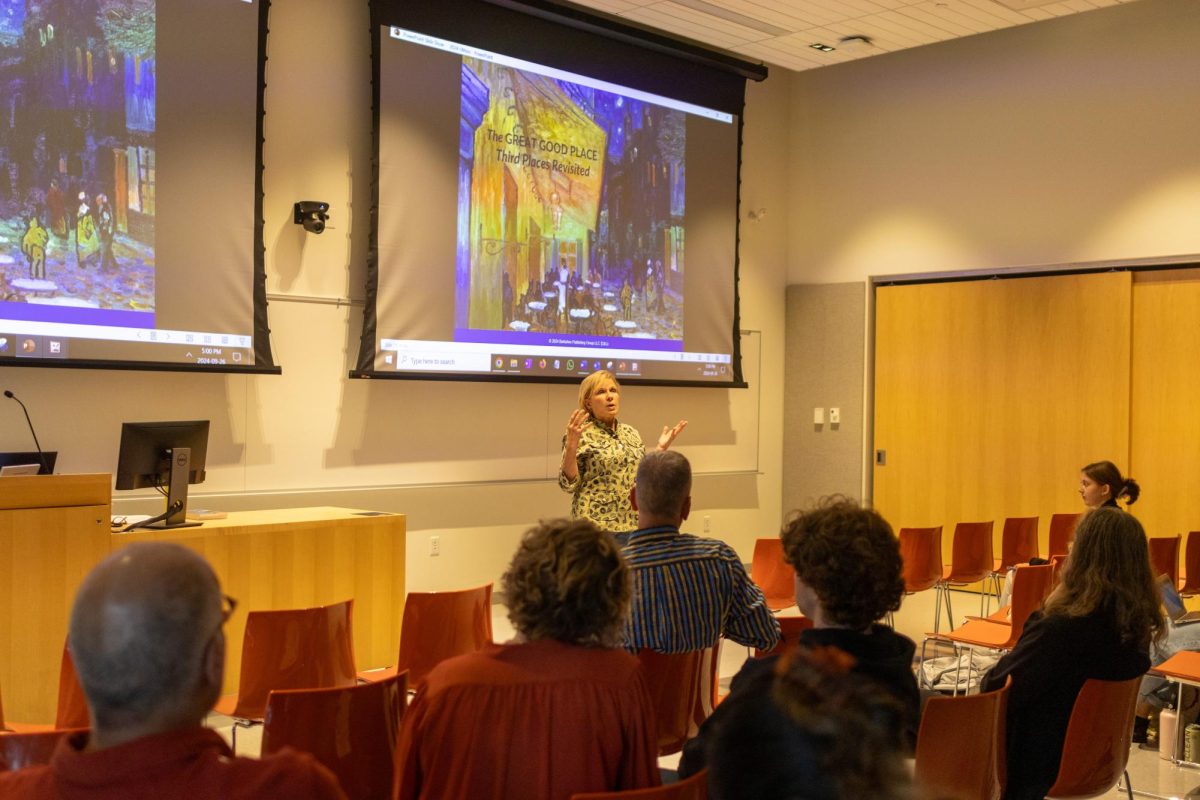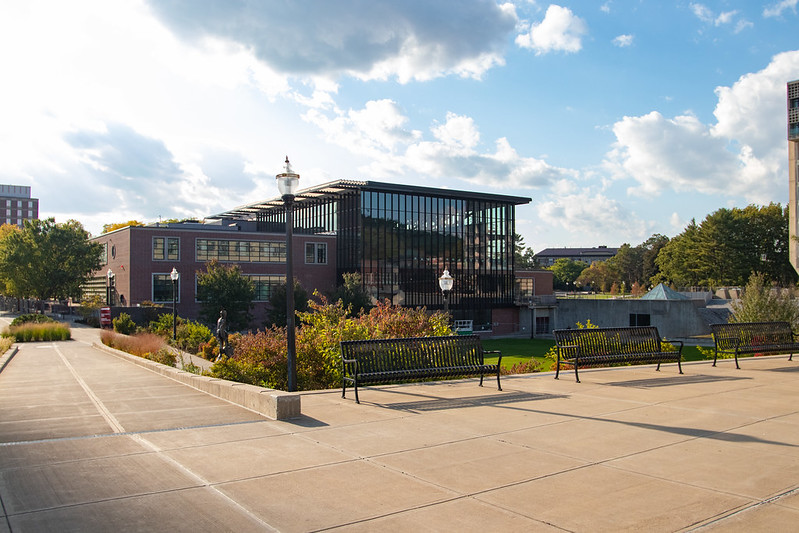
Around 70 University of Massachusetts students, faculty and members of the community gathered in Amherst town hall on Thursday to share their ideas and visions for the role of UMass in supporting a more sustainable and fair food system.
Members of the UMass Real Food Challenge hosted the Real Food Town Hall. Chancellor Kumble Subbaswamy and Ken Toong, the executive director of Auxiliary Enterprises, signed the Real Food Campus Commitment in October 2013. This commitment promises to shift 20 percent of the University’s food purchasing to real food – food that truly nourishes producers, consumers, communities and the Earth – by the year 2020.
According to the Real Food Challenge website, this is a nationwide campaign to shift one billion dollars of existing food budgets in universities across America away from the industrial farming towards local and humane food sources.
UMass is currently the largest university in America to take the Real Food Challenge. Members are in the process of creating an official food policy as part of the Real Food Campus Commitment, and the Real Food Town Hall meeting was the first step in the creation of the policy.
The meeting began around a large painted wheel on the floor of the conference room. The wheel featured the phrase “What is Real Food?” The center of the wheel read “food that truly nourishes.” There were four sections outlined in this wheel – producers, the earth, communities and consumers. Individuals around the wheel read off different parts of each section. There was a discussion of the wheel, and people made suggestions about adding new topics to the wheel.
The meeting was then broken up into small group sessions where individuals were asked to move towards the section of the wheel where they felt they belonged. Members of the Real Food Challenge facilitated conversations in these smaller groups. Each group gave ideas and opinions about what they would like to see come from the new food policy.
The meeting was mainly attended by UMass students. Members of the Real Food Challenge as well as food service workers, student activists and volunteers were present. Many of them had majors like sustainable farming, food science, nutrition and biology.
Rachel Fahey, a biology major, got involved with the Real Food Challenge because she felt it was a “good thing to put time and energy into.”
There were also those like Mary Mackie, a graduate student and volunteer at the All Things Local co-op, who attended the meeting to learn more about the Real Food Challenge. Members of the community, local farmers, small business owners, teachers, parents and UMass faculty were also present.
Meg Little works as a sustainability coordinator for UMass Auxiliary, and said the commitment to real food is a huge priority for the school and believes the Real Food Challenge goal is entirely possible.
Chris Felton, who works in civic engagement and service learning, came to the meeting to support her students who are involved with the Real Food Challenge. She said that she is, “Lucky to be able to learn through students and see real change as a result of it on campus.”
Members of UMass Real Food Challenge will take the ideas and visions presented at the meeting and use them to draft their food policy. They plan on holding a meeting in the future to gather input on this draft.
Kathleen Kirk can be reached at [email protected].


















